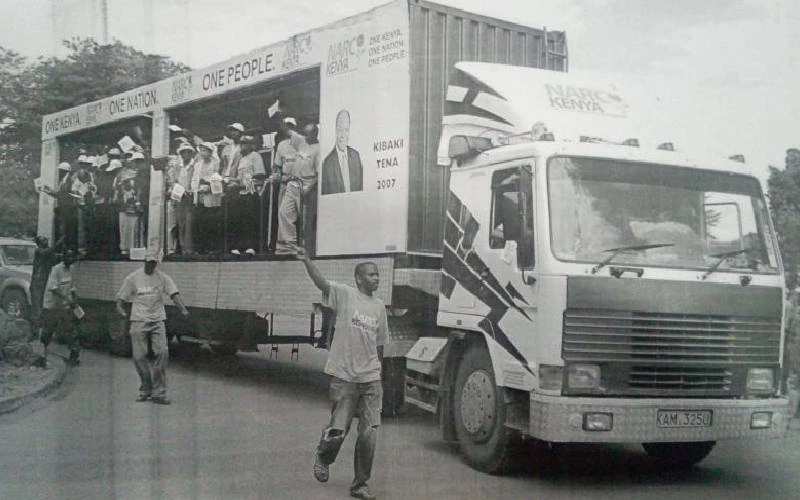×
The Standard e-Paper
Smart Minds Choose Us

A campaign truck with 'Kibaki Tena' slogan.[File,Standard]
Deputy President William Ruto’s ‘bottom-up’ slogan may be the most notable rallying call, but it is not the only campaign messaging centred around the economy.